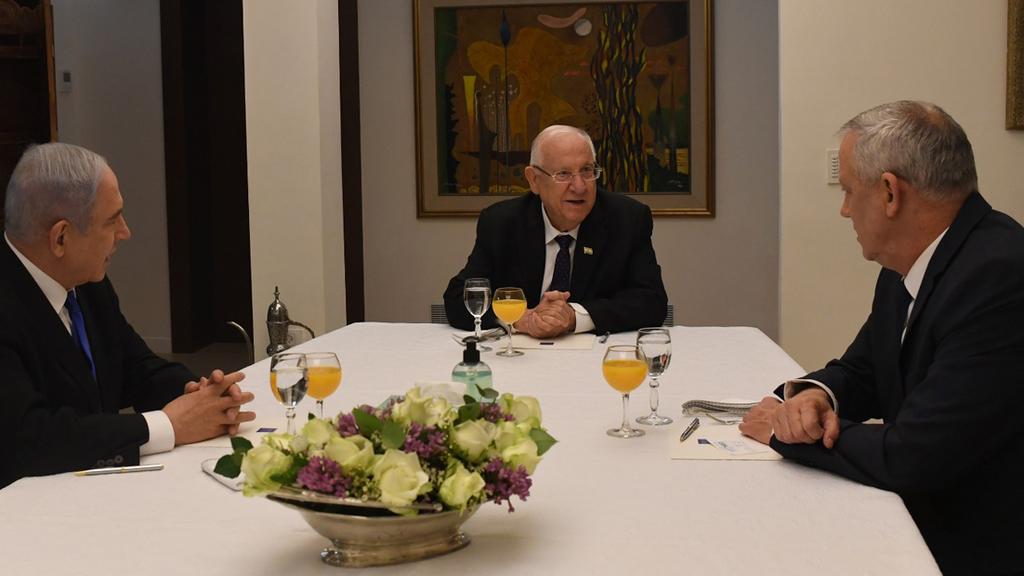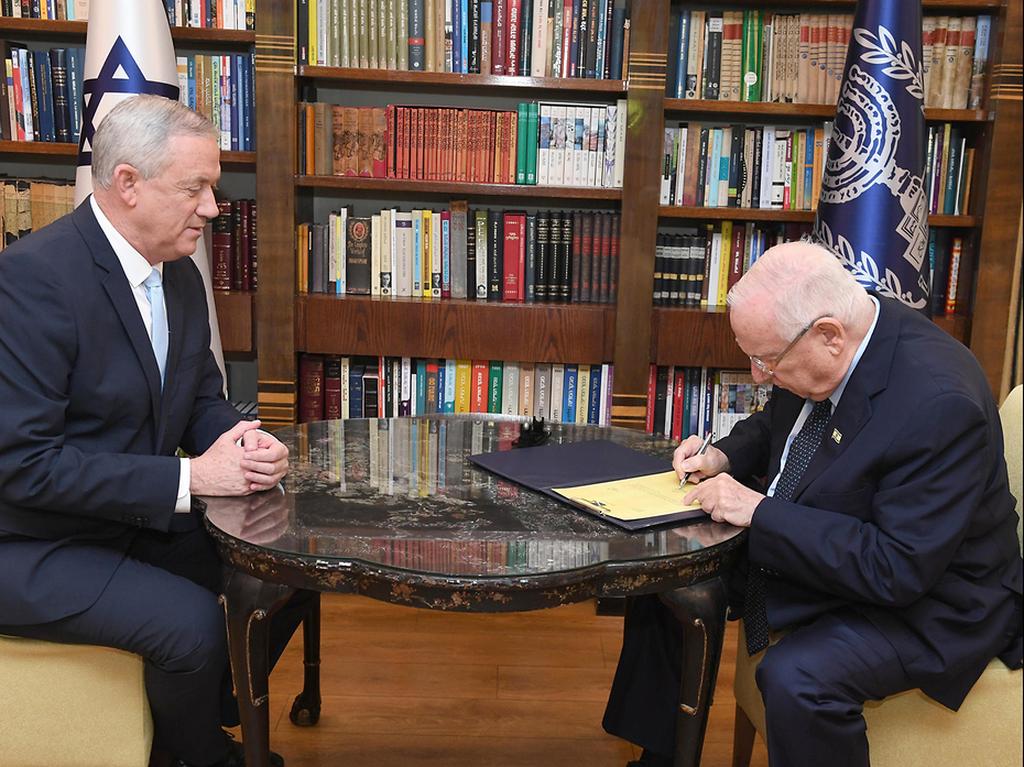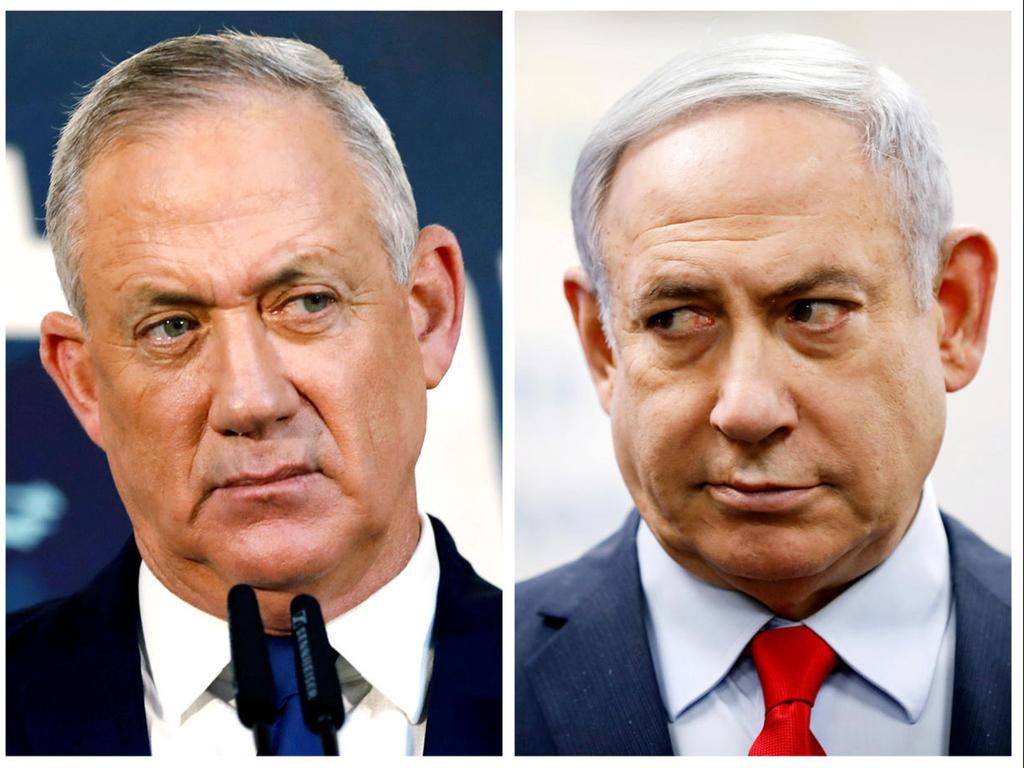Getting your Trinity Audio player ready...
Thanks to the coronavirus, Prime Minister Benjamin Netanyahu and Blue & White leader Benny Gantz do not have to shake hands. The last time they shared a rather stiff handshake was when President Reuven Rivlin urged them to consider a unity government after the September 2019 elections.
The coronavirus has also put to bed, at least for now, any notion of a viable fourth election cycle.
Still Gantz, despite his 61-MK support, is unlikely to form a coalition, and Netanyahu, despite his loyal parliamentary bloc, is also unable to do so.
But considering a unity government now is also a challenge.
Gantz does not trust Netanyahu. His primary takeaway from his first year in politics is that the Likud leader does not value the truth.
Netanyahu, on the other hand, has learned from his 30 years in politics that truth is unimportant. You can be untruthful and just move on.
The prime minister has little respect for his opponent's political talents. The two are also inconsistent when it comes to expressing their views.
Netanyahu is said to become more extreme after spending a weekend at home with his family and Gantz becomes more obstinate after he meets with his party leadership. Other politicians have also taken a stand making their sometimes unpopular positions clear.
3 View gallery


Benjamin Netanyahu Left, President Rivlin, and Benny Gantz meet to discuss a unity government
(Photo: GPO)
President Reuven Rivlin has already tried his best to bring about a unity government.
After the mandate to form a government was given to Gantz, the major parties will once again begin to discuss unity.
Yisrael Beytenu leader Avigdor Liberman has already said such a government should be made up of the two largest parties only. This would be seen as a positive move by the vast majority of voters, but Netanyahu is unlikely to agree to leave his right-wing and religious bloc members out of the circle of power.
Initially, Netanyahu tried to entice Blue & White into an emergency cabinet without any real authority, but that was rejected.
For now, Gantz has been tasked with forming a coalition. His party is set to replace the Knesset speaker and crucial parliamentary committee heads.
3 View gallery


Benny Gantz receives a mandate from President Rivlin to form a new coalition government
(Photo: GPO)
On the Likud side, Justice Minister Amir Ohana has suspended court hearings and provided his boss with a few months' delay before his criminal trial for bribery, fraud, and breach of trust is to begin.
Edelstein, like Netanyahu, is clinging on for dear life and refusing to vacate the speaker's chair. The two behave like their positions were God-given and not the result of a democratic process.
In 2013, Yuli Edelstein, then a Likud member of Knesset hoping to secure an appointment as speaker, explained that Reuven Rivlin, who occupied the chair at the time, must be removed because he may influence the vote for a new president, a position Rivlin was hoping to fill.
Edelstein's concern than, for the integrity of the democratic system was touching but is now nowhere to be found.
Coronavirus might prove the way out of a bind.
The prime minister has been hearing the projections of experts who tell him Israel is heading in the same direction as Italy.
Hospitals may collapse within weeks, with people dying and many more found to be sick.
Netanyahu knows the compliments he has lavishly bestowed upon himself during his television appearances are no more than wishful thinking, and it would be wise and prudent on his part to have the Blue & White party at his side when the gravity of the situation becomes evident.


